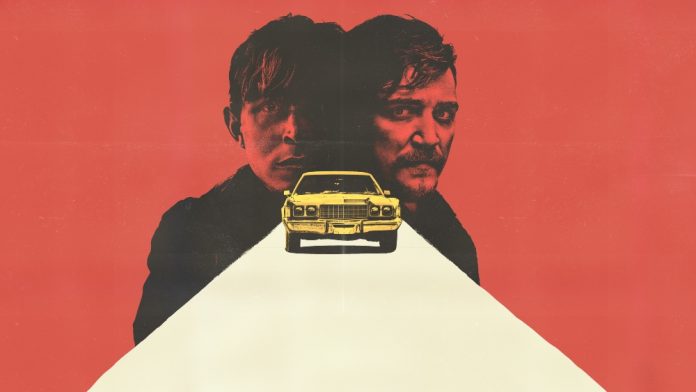Carter Smith spent years as a fashion photographer before making a short film that garnered Hollywood’s attention and won him a job working for Steven Spielberg and Dreamworks on The Ruins, which marked his feature directorial debut.
The film was based on a popular novel and though it underperformed at the box office, it turned out to be a valuable learning lesson for Smith, as did his 2014 follow-up Jamie Marks Is Dead, a supernatural horror drama that premiered at Sundance. In fact, I wore my neon green beanie from JMID‘s premiere for the following interview. If you’re interested in one, Smith said he still has a whole box full of ’em.
This week, Smith returns with the Blumhouse movie The Passenger, a strong two-hander that pits actors Kyle Gallner (Dinner in America) and Johnny Berchtold (Gaslit) on a road trip from hell. Gallner’s turn as a charismatic killer is particularly mesmerizing; it’s the kind of role that reminded me of Brad Pitt‘s character in Kalifornia.
Above the Line recently spoke to Smith, who discussed how he worked his way back into the feature world with an episode of Blumhouse’s anthology series Into the Dark and kept in touch with the company’s execs though they struggled to find the right project to work on together. That’s when Blumhouse gave Smith the OK to bring something to them, and he reached out to writer Jack Stanley, who dug The Passenger script out of a drawer. Smith connected with gritty psychodrama, which is now available on digital/VOD platforms. Our chat is below:
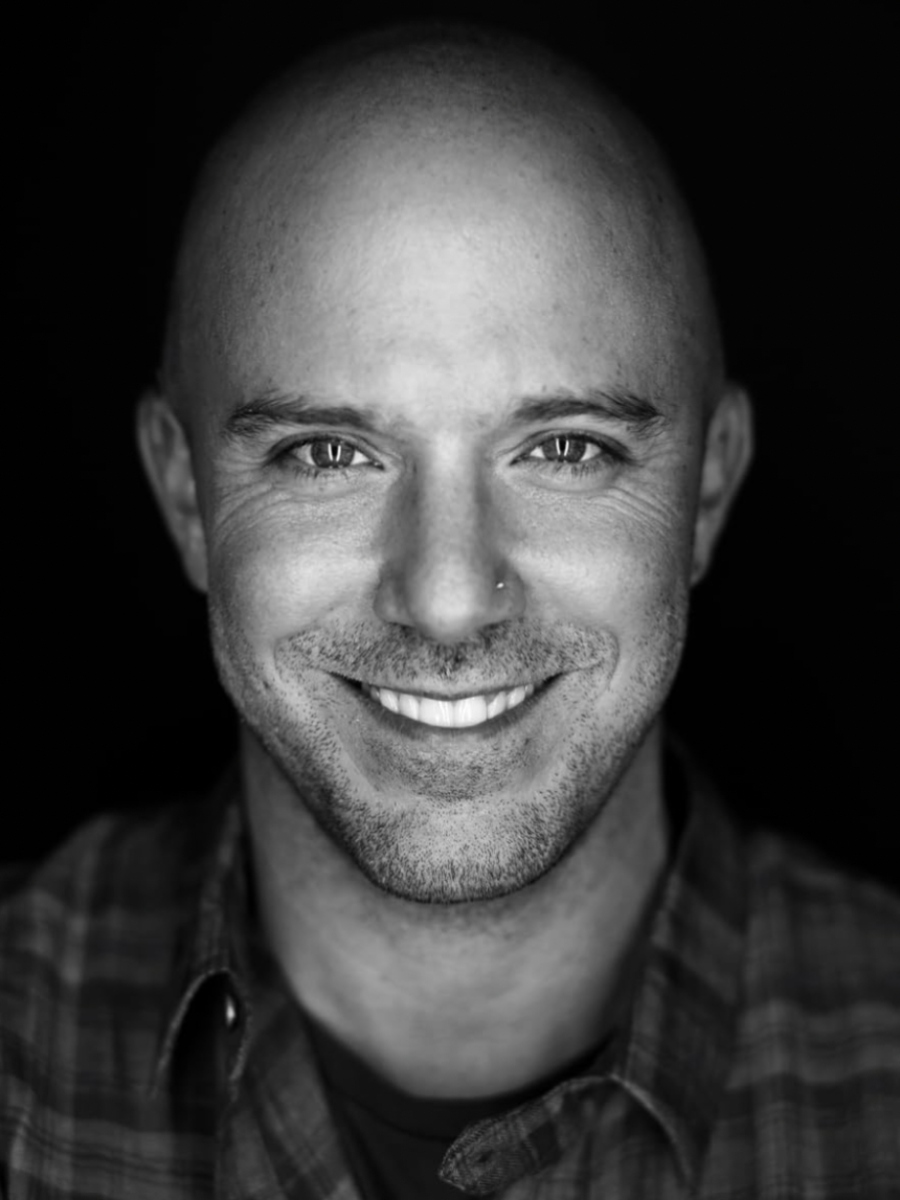
Above the Line: How’d this project makes its way to you, and what was it about the script that sparked your initial interest?
Carter Smith: I had done a project with Blumhouse before. I had done Midnight Kiss for them as part of their Into the Dark series, and so we had talked about finding something else to do. Their sort of production slate, in terms of making streaming movies, like, they make movies, which I think is really exciting, so we’d talked about trying to find something to do. [But] none of the scripts that they sent me kind of hit in the way that they need to hit if you’re going to spend a year of your life working on them, and so I asked them if they would be open to me going out and trying to find something that might fit the parameters of their production model.
So, I went to Jack Stanley, who wrote the script. I was a fan of his work, I’d read stuff of his in the past, and we’d never worked together, so I said, ‘Do you have anything in this sweet spot?’ and he pulled The Passenger out of a drawer and was like, ‘Uhhh, I haven’t read this in a while, but let me take a look…’ And I fell in love with it from the first time I read it. And it’s not an obvious choice for a Blumhouse film. There’s definitely some stuff that’s classic Blumhouse but at the same time, it’s very much like a kind of slow-burn, psychological drama-thriller. It’s a messed-up character piece in a lot of ways.
ATL: Those are certainly my kind of movies. Why don’t you tell me about casting Kyle Gallner and Johnny Berchtold and why you felt they were right for their roles?
Smith: I’ve been a fan of Kyle’s for a long time; I actually didn’t know most of his TV stuff, but I’d seen him in films and stuff, and as soon as his name came up, I was like, ‘Yes, okay, that’s such an amazing idea.’ Because it’s important that Benson is unhinged and unpredictable, but he also has to be incredibly charming and he has to not only win over Randy, but he has to win over the audience, in a certain respect.
With Johnny, it was very much a casting, like, put yourself on a tape, callbacks… and from the very first time that I saw his tape, I was like, ‘Oh, that’s Randy. He’s the one to beat.’ And sometimes that happens, and sometimes it doesn’t. And with him, from the very first time I watched his first self-tape, he made so many smart choices. It was kind of a dream scenario because I got my first choice, you know, for both of them.
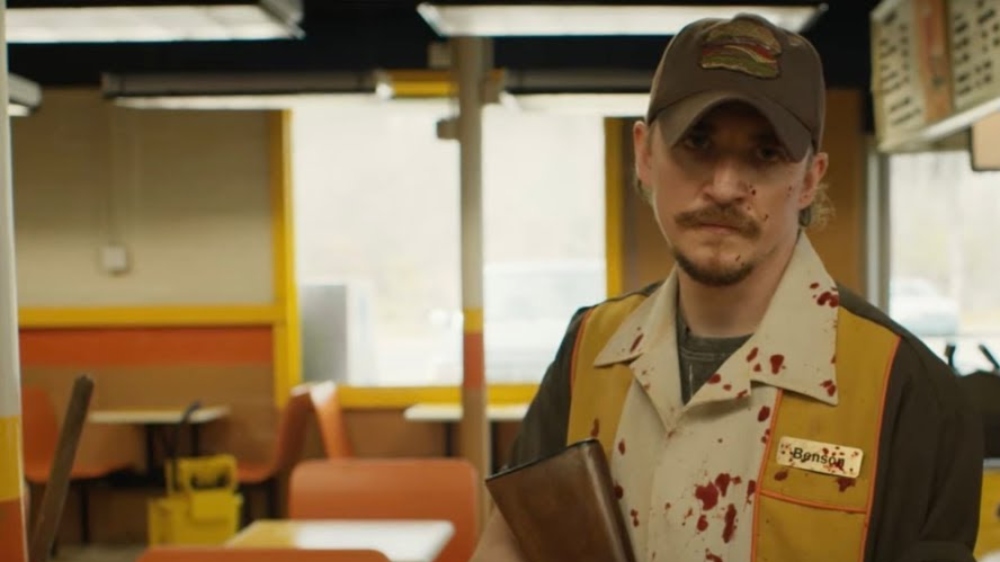
ATL: Did those guys have to test together, or was Kyle cast first, and then you had to find the guy to pair with him?
Smith: No, it was very much like, “OK, this would be a pairing.” It wasn’t one and then the other, it was very much about creating a duo that was really, really strong. Also, once we had some tapes, I shared Johnny’s tape with my 15-year-old niece, and she was like, ‘Oh yeah, I really like this one.’ And I was like, ‘OK, great! Me too.’
ATL: Was there ever a concern that Johnny’s character was being too passive, or is that the whole point, and why the ending is what it is?
Smith: Yeah, I think that is kinda the whole point. Because he spends so much of the film and so much of his life not in control and not sort of taking the lead, it’s what makes that final scene work, hopefully, the way that it does. Something as simple as a [spoiler removed] can be monumentally difficult and life-changing for someone, but you sort of have to lay the groundwork for that to have power.
ATL: What about the level of violence of the fast food massacre? Did you have to be careful not to fetishize it or glamorize it?
Smith: Of course, with something as horrific as that, you definitely want to not necessarily present it as entertainment but as a horrific reality, and I felt like there was sort of a very matter-of-fact approach that we took to filming it that didn’t gloss over the sort of messiness or the horror of it. I knew that I wanted it to be super impactful and really horrific. It needed to really land like a punch to the gut, but it was definitely a fine line, and where is the line, and when does it become too much?
What I found super interesting was the aftermath and sort of the clean-up, and the idea that, “yeah, you’re faced with the results of the actions.” It’s not just, “You do something horrible and then you don’t have to sort of think about it.” It’s like, “No, you have to spend hours and deal with it.”
ATL: I thought it was a very effective, brutal sequence. How long did it take to shoot The Passenger and where did you film it?
Smith: We shot in New Orleans and I think it was a 25-day shoot. Maybe 27? 26? I’m blanking on the exact number but it was a pretty quickly-moving production, for sure.
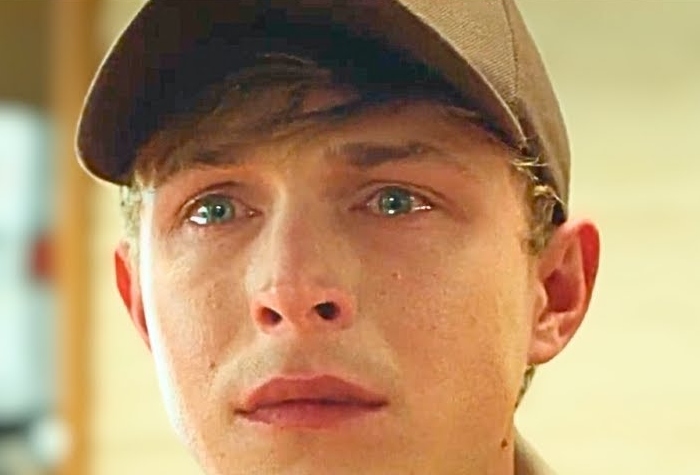
ATL: How’d you get your start? Was it music videos, commercials? How’d you get your first gig on The Ruins?
Smith: No, I was a fashion photographer for years and years, for a very long time, before I made a short film called Bugcrush, which was [my] first short. I had already been shooting fashion for 15 years when I made that and we ended up winning “Best Short” at Sundance, which is obviously a first-time filmmaker’s dream scenario, and that put me on the radar of Hollywood. The people at DreamWorks saw Bugcrush and I went through lots of rounds of meetings with them, and eventually [Steven] Spielberg watched it and that was my final pitch. I spent about a year pitching my take on The Ruins while they courted other directors — I was sort of the back-pocket choice — and eventually, everyone else fell off and I was still there and still eager.
ATL: Sometimes it’s about being the last man standing. Did Steven give you any advice as you embarked on your directorial debut? Do you remember anything from that time?
Smith: The thing that was great about that meeting with him — that was the last, final round — he spent the first 20 minutes of that meeting talking about Bugcrush and talking about how much it affected him and how much he loved it, and asking me questions about it. He was just very much eager to know what my version of The Ruins would be, and not to sort of impose anyone else’s version, and mine was different, probably, from what Dreamworks was thinking, to be honest. It’s a pretty brutal, grim movie. And you know, that’s me — and the material — but it’s not a movie they necessarily would’ve rushed to make in the form that it turned out.
ATL: Maybe not, but it’s good, Carter. You did a good job on that one. So then you take Jamie Marks Is Dead to Sundance. What did you learn from that whole experience?
Smith: I adapted it from a novel called One for Sorrow, and I think that the biggest thing I learned from that experience was that I really wanted to embrace genre. Jamie Marks kind of sits between genres. It’s a drama, but there’s a supernatural element, but it wasn’t horror enough for horror audiences, and it wasn’t sort of gay enough for queer audiences. It left me a little bit like, “OK, I wanna play with something that is truly trying to be scary or trying to be terrifying,” and thinking about the audience more than just falling deeply in love with the material, is something that I walked away from that with.
ATL: You said earlier that you’d read some early scripts from Jack Stanley. Did you get a chance to read his Chronicle 2 script?
Smith: Oh no, I didn’t. I have not read that one. He did a werewolf project that’s really good.
ATL: Christina Bazdekis is one of my favorite agents. Can you tell me a good story about her, she won’t mind. Perhaps some advice that she gave you along the way or a decision that she saved you from making?
Smith: Yes, [she’s been my agent] all the way back to Bugcrush. I mean, the thing about Bazdekis is, we have very similar tastes. There’s never been a project where she was like, ‘Oh, that’s too weird, that’s too crazy.’ Usually, those are the ones [where] we’re both like, ‘I really liked it, did you really like it?’ We’re very much on the same page, maybe to our detriment, you know what I mean, in that, both of us are always flocking to the weird, strange, disturbing, dark little project that no one knows how to package and sell.
ATL: OK, so she keeps an open mind.
Smith: Absolutely, yeah.
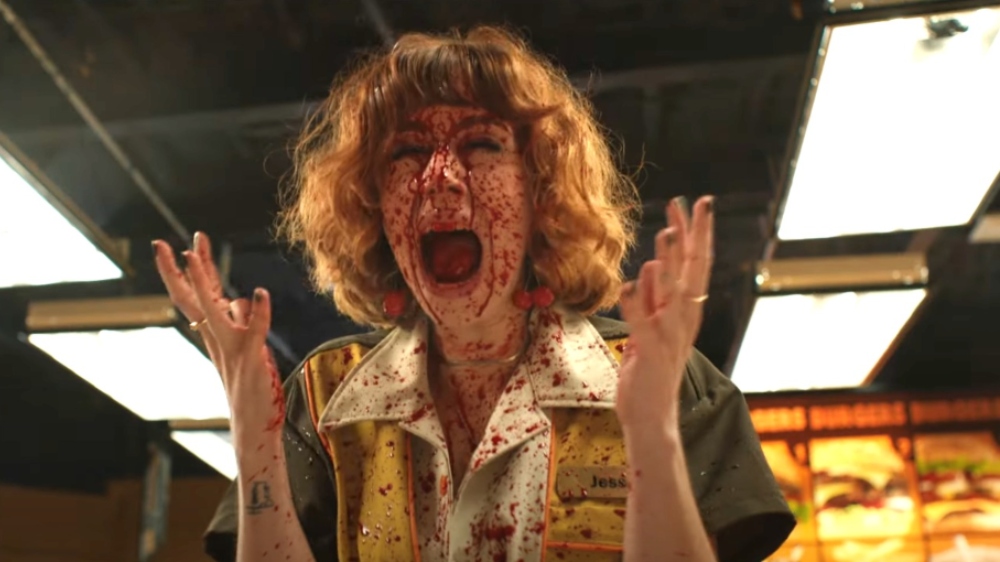
ATL: Can you talk about working with composer Christopher Bear on this movie? I really liked his score, and I understand he’s a songwriter who recently transitioned into composing, though I know you worked with him on your indie movie Swallowed. He’s having a big year with Past Lives, so can you talk about working with Christopher a little bit?
Smith: Yeah, it was great because I jumped on to The Passenger and we started very soon after I was finishing up on Swallowed, which was a tiny little micro-budget film, so to be able to come back and say, ‘OK, now let’s do it again and we’ll have a little more time and a little more money and a little more resources to do it,’ so we did two films together back-to-back, almost, which was great.
And for The Passenger in particular, we were able to spend a lot of time working on the cues and sort of figuring out the build of it, because you’re with these two guys and so there’s this arc of what’s happening in their relationship, which was really fun.
I like that his background is in songwriting and not necessarily soundtrack stuff so he kind of comes at it with a really fresh eye. And to me, that’s one of the most fun parts — getting to go over to his studio and sit behind him at the keyboard and go, ‘What about this, and what about this?’ That is just so exciting.
ATL: I thought he did a nice job here. So what’s next for you and are you developing any other projects with Blumhouse?
Smith: Everything is on hold at the moment — no surprise there — so [I’m just] getting this one out in the world, and I’m always kind of writing and taking pictures, and doing stuff sort of on my own. But there’s a big old pause button on everything at the moment.
ATL: Any feelings you’d like to share about the strike?
Smith: Obviously, I think that creatives deserve a living wage and it’s pretty complicated, on all sides, but I’m in support of them and I think that while it’s not ideal that I don’t have Kyle and Johnny and Liza [Weil] sitting [here] helping me get this movie out, I think that the actors and the writers are doing a good thing.
ATL: Absolutely, for sure. I’d end by asking you what you’re watching, but since we’re not going to promote any other movies or TV shows the studios and streamers are putting out, what are you listening to or reading? Anything good?
Smith: I just started Blackwater. Do you know Michael McDowell? It’s a series of novels that came out, I think, in the early ’80s, and he’s a southern gothic queer writer who wrote about this town in Alabama where this flood came in, and the novels were released, I think, one a month. It was where Stephen King got the idea for The Green Mile when he originally released that. So I’m on Blackwater book one, which so far, is great. And that’s all. I can’t think of anything I’m listening to that is all that interesting.
ATL: I will add Blackwater to my list then. Carter thanks so much for taking the time to chat today, and good luck with the release.
Smith: Thank you. Thanks for pulling out the [JMID] hat.
The Passenger is now available to buy or rent on all major VOD/digital platforms, and it will begin streaming on MGM+ later this year.


